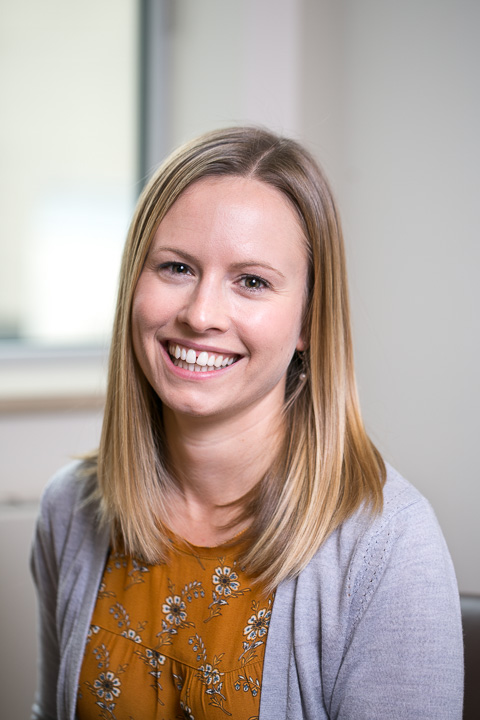Dr. Elizabeth Amos
Role at the CentreHome-care doctor Year started at the Centre2016 Shares a practice withDr. Adam Goldman | Dr. Liz Amos had only been with the Latner Centre for two months when I met with her. She was, as she says, “brand new”; a maritimer from Halifax, dealing with the culture shock of moving to the biggest city in Canada, a new job, a new life entirely. She says she “fell in love” with palliative care when she was in her Family Medicine residency. “One of my main instructors for my family practice did about 80% palliative care. I didn’t know about palliative care in medical school, it wasn’t taught and I had no exposure to it. My preceptor would take me on home visits to see her patients. I just fell in love with it. It was the first thing I did in medicine where I felt I was actually making a difference — it was extremely rewarding. I felt like I was doing something beneficial for patients and families.” But what is it, specifically, that Liz loves, I wonder? “We’re looking at the whole person, which is one of the things that I love about palliative care. You have to take everything in context. Medicine now has become so specialized.” Isn’t that necessary though? It’s just not possible for one person to master all that needs to be known about a body, is it? Don’t we need specialists? “Of course. But for some patients, especially the people we see, that doesn’t always work as well.“ Treating the whole person and understanding their broader context is the key, she believes. “Going to people’s homes you understand their context. When you sit in an office with somebody and they can put on their best face you really have no idea what they’re dealing with. Seeing whether your recommendations are actually useful is really helpful. When I was in medical school, I saw a patient who wasn’t taking their medication. Nobody understood why. So we went to his home. He had no running water, no insulation, no indoor plumbing — and when you see that you think, well of course he’s not taking his medications. If you see people in their homes, you see the whole picture, which I think is so important to provide good palliative care.” It’s also critical, she believes, to be a little creative, to allow for some flexibility around the medical “norms”. “In medicine there’s the “right way to do things” or the prescribed best practice. But there are situations where the best practice isn’t necessarily the best course of action for that particular patient. For example, when I was in residency I had a patient who had advanced head and neck cancer. She was having difficulty eating, but otherwise was still pretty well, because most of her disease was so localized. She desperately wanted to get to the celebration of life her family was planning before she died. It was about two weeks away. But we couldn’t get anyone to put a feeding tube in for her. We ended up starting her on home TPN.” TPN, or Total Parenteral Nutrition is a way of providing nutrition to a patient intravenously. “This allowed her to have her celebration of life, and then afterwards it was discontinued and she had a peaceful death. When you’re in people’s homes and you see how they live and really understand what’s important to them, it teaches you to be a bit more creative in your approach.” |





